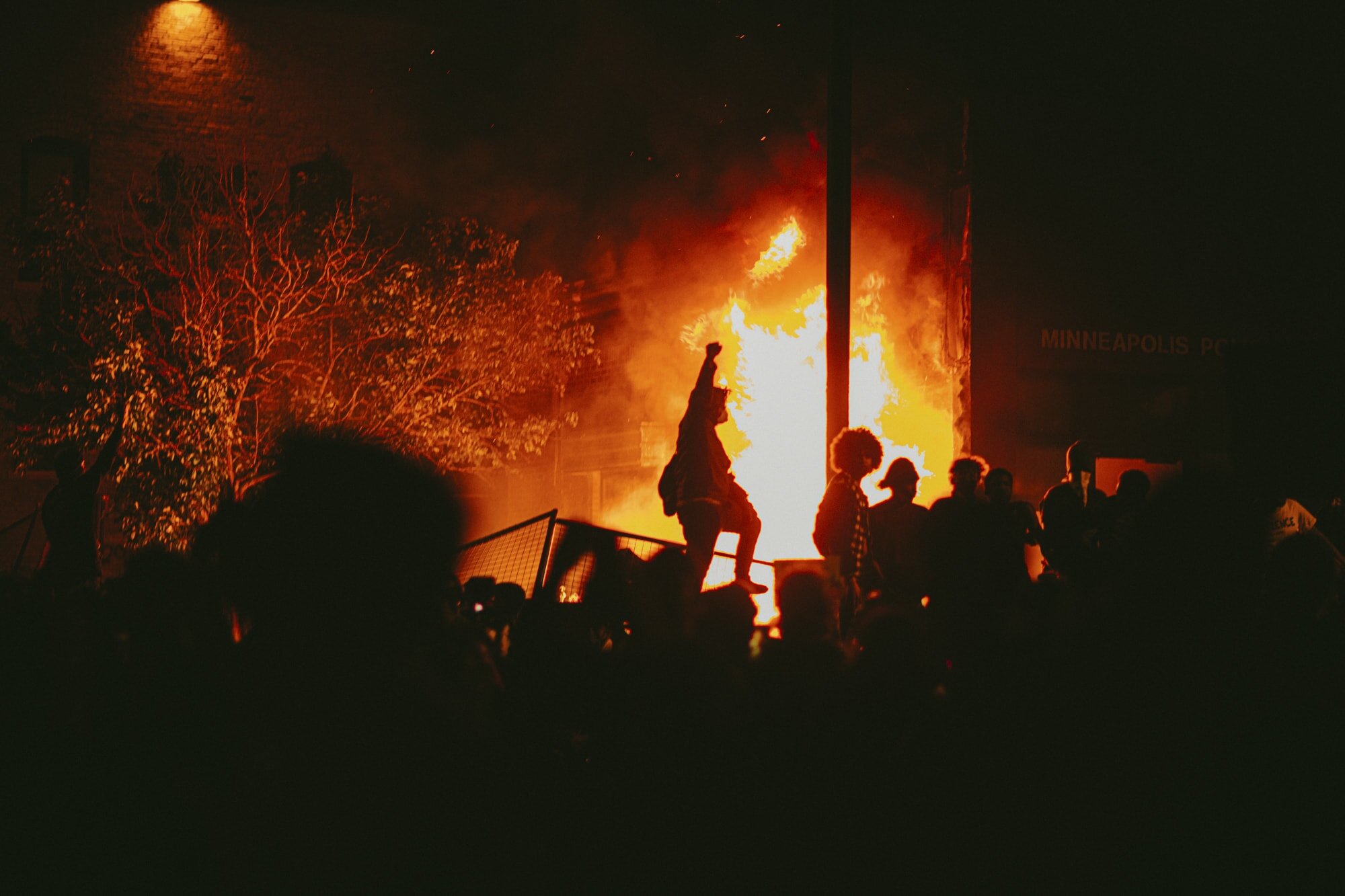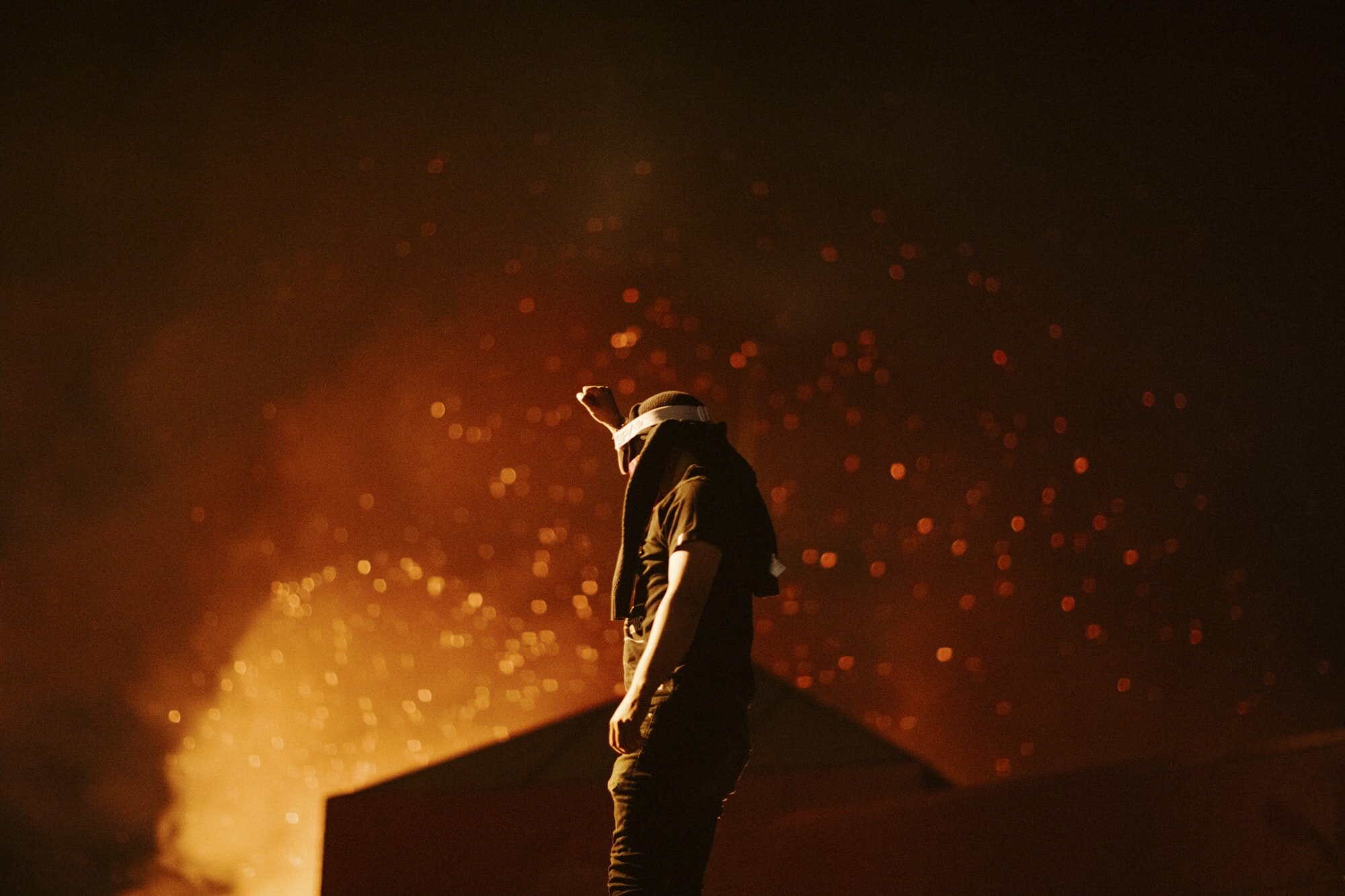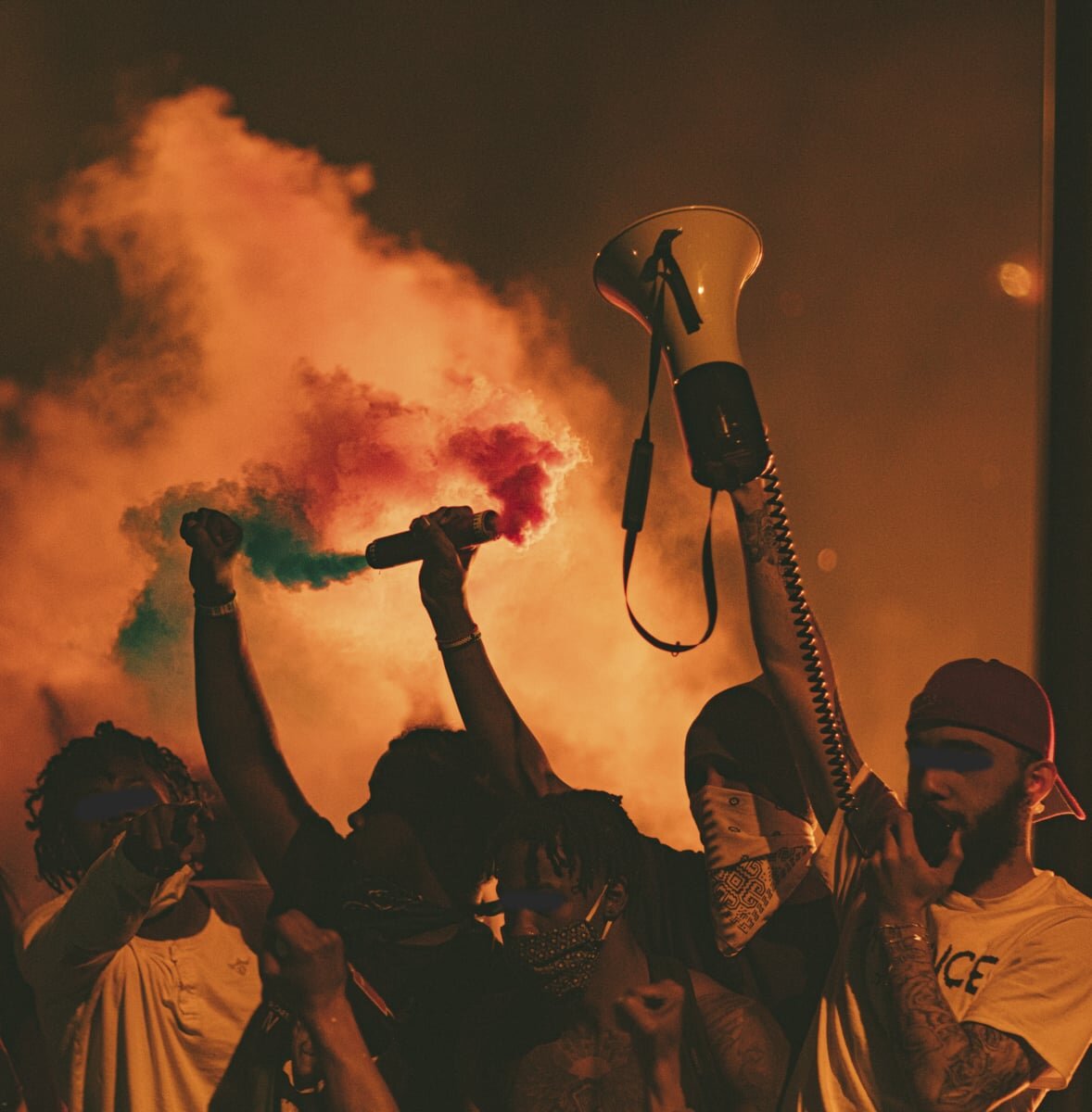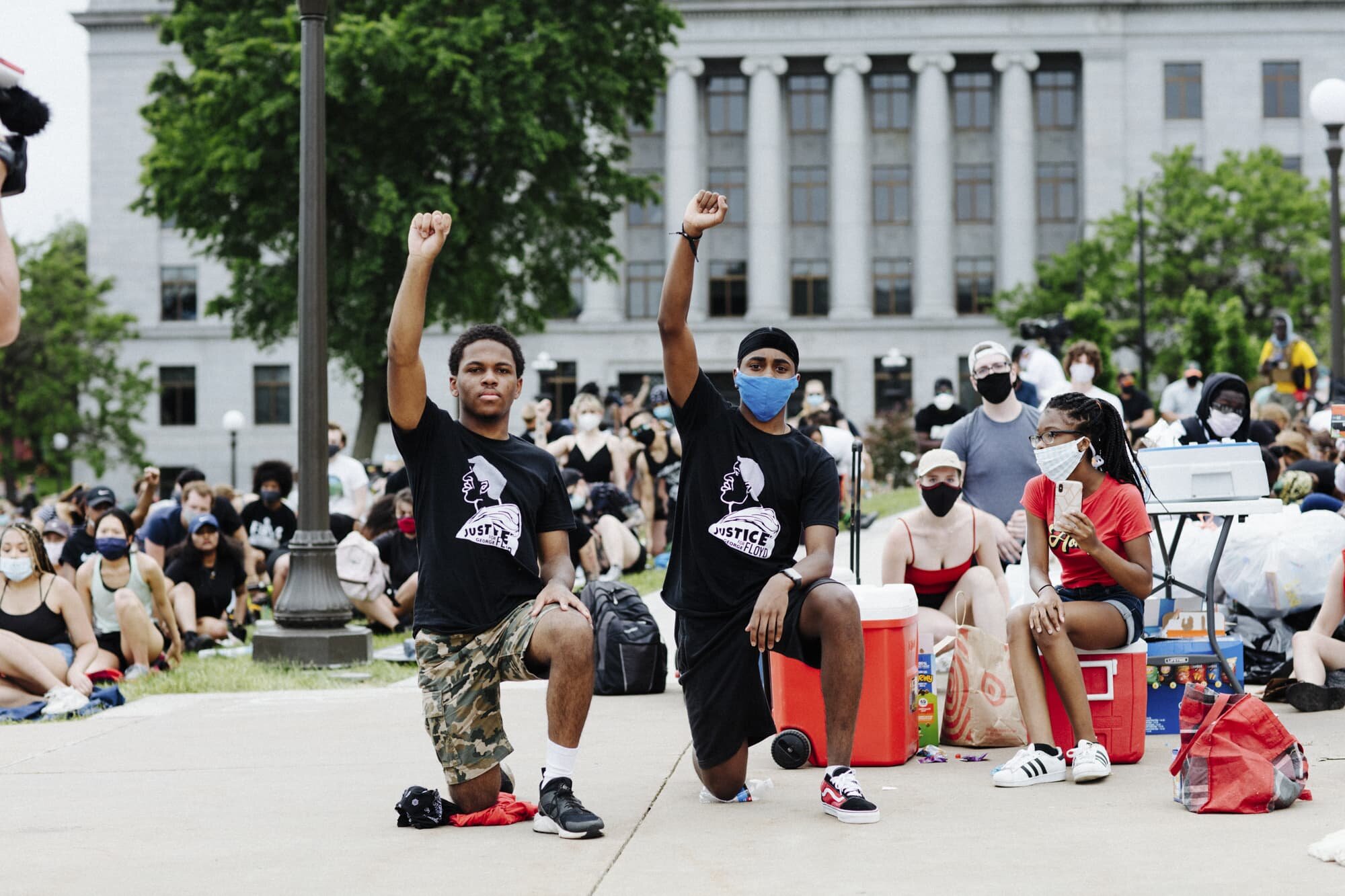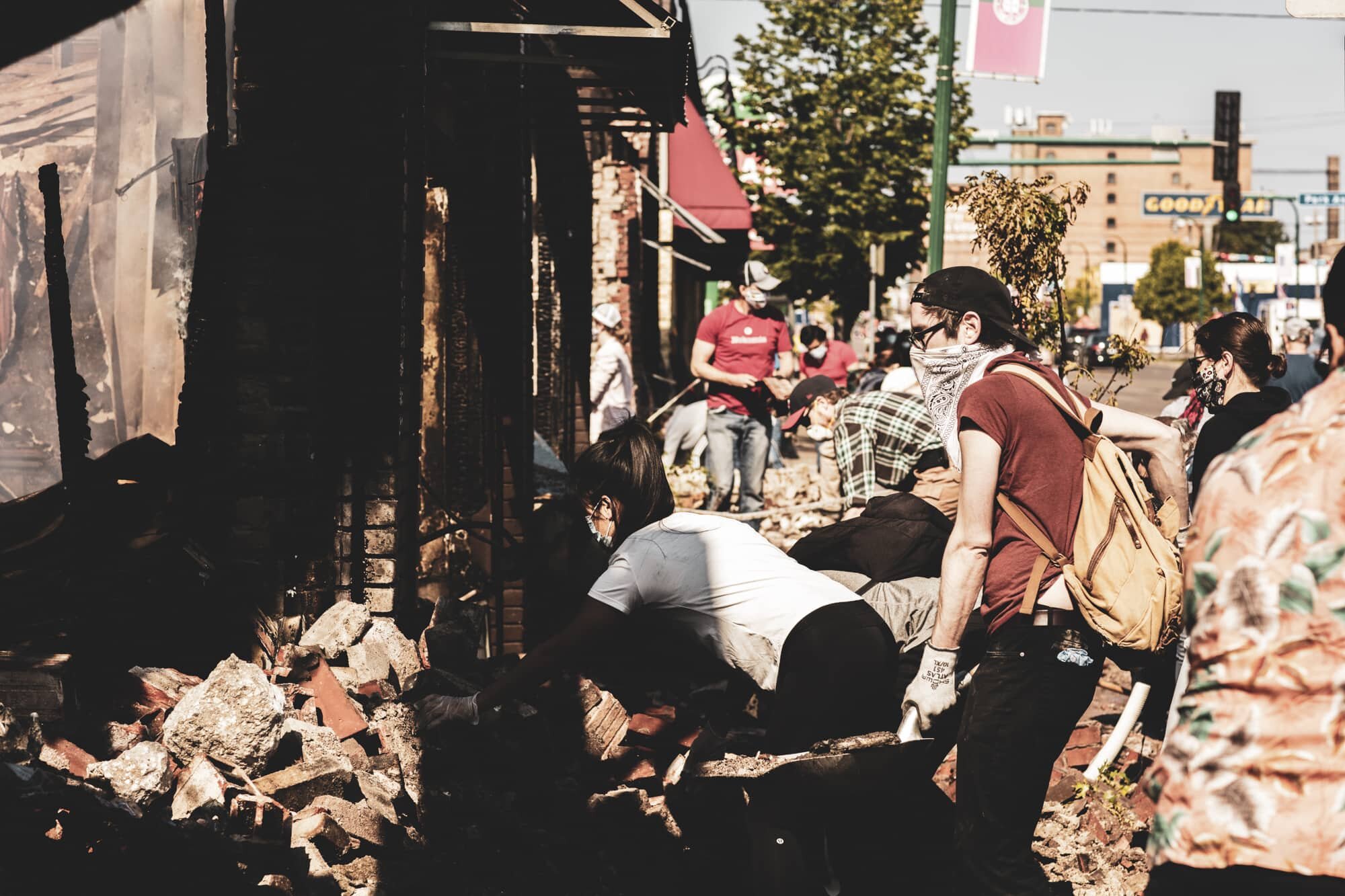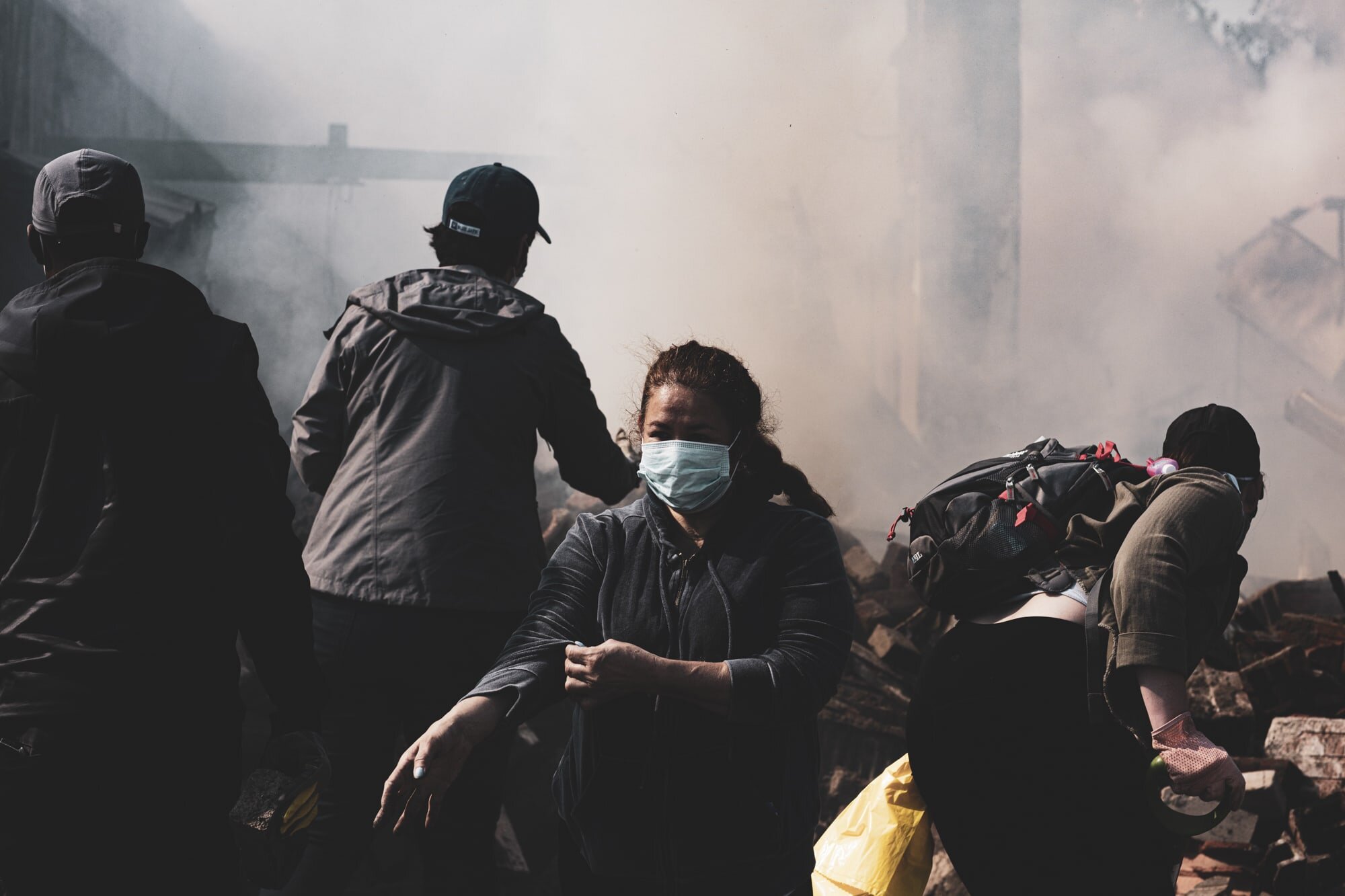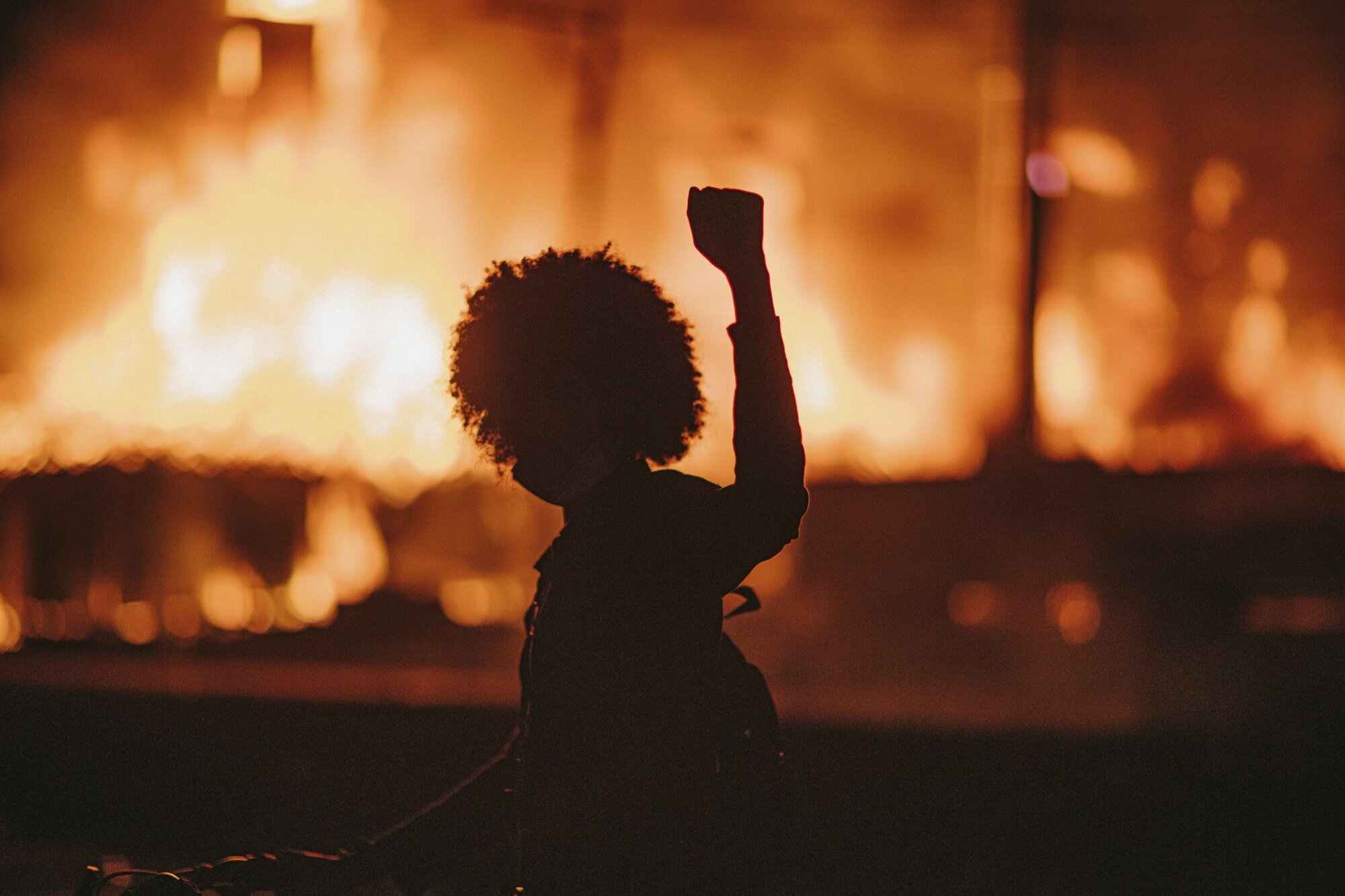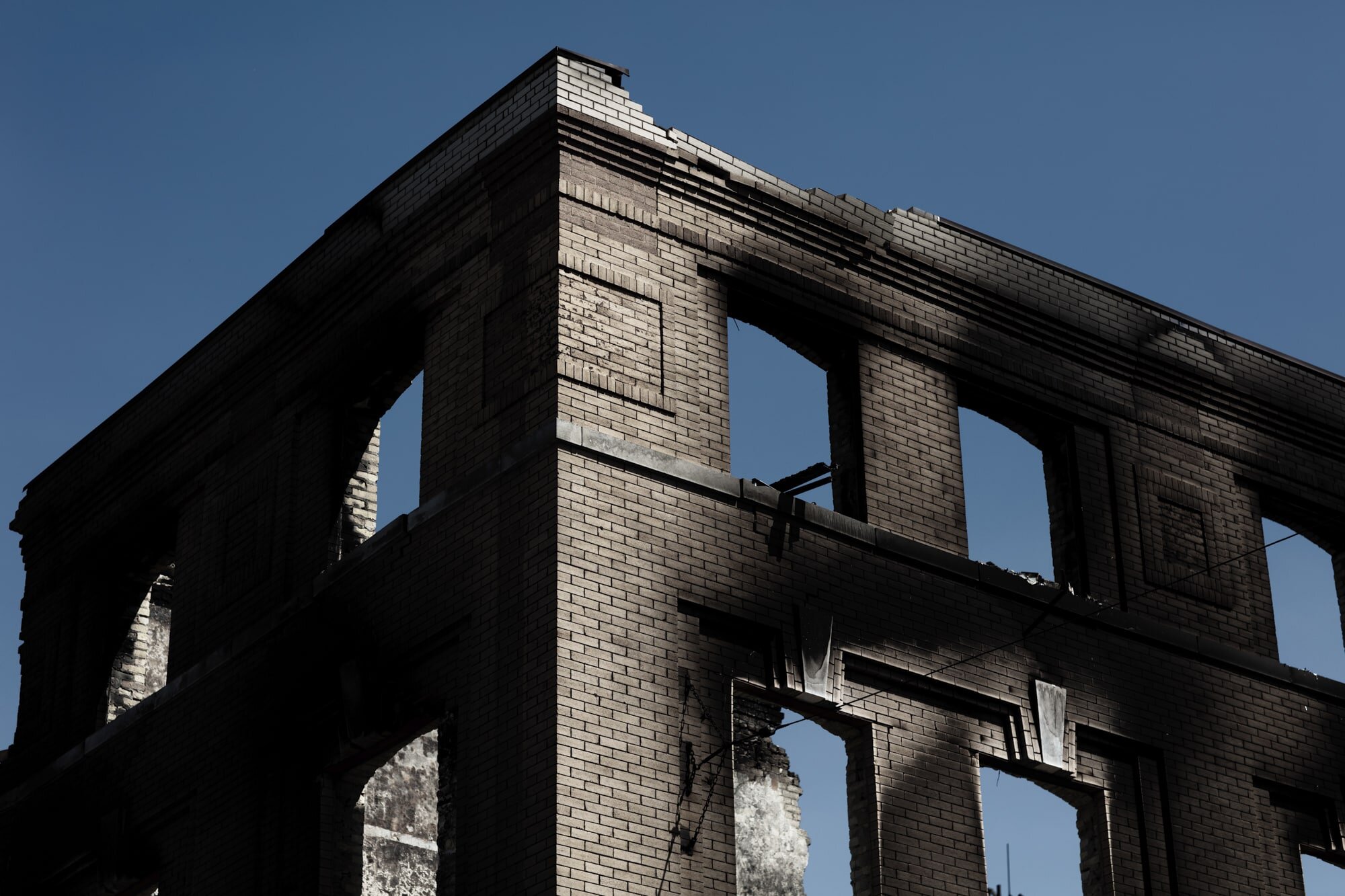Through the Lens of the Diaspora with Wale Agboola
As a visual storyteller, Wale Agboola travels around the world to learn more about regular and indigenous tribes and tell their day to day stories. His work is emotionally driven, and his ability to capture emotion in a single image comes from his diverse background, and being raised to be well-versed in understanding human emotion and art + storytelling. Nigerian born and London raised, Wale now calls the US home. His photographs and talent speak for themselves, capturing gripping, powerful stories of individuals and cultures for a world in struggle.
The following is a transcript of the conversation between Wale and Spora Health founder and CEO, Dan Miller on his global photographic perspective, the emotional toll of the work he does, and how he and his community take care of eachother.
If you’d prefer to listen? Check out our Youtube channel
A Conversation on Perspective & the Diaspora
Dan Miller: Hi everyone. Welcome to another episode of the Link. I am Dan Miller, founder and CEO of Spora. The Link is where we have avant-garde conversations with culture creators about health and wellness, specifically focusing on the BIPOC community and today's guest is Wale Agboola. Welcome!
Wale Agboola: It's good to be here. Thank you very much for having me.
Dan Miller: Yeah, absolutely. Tell us a little bit about yourself, so the guests can get familiar.
Wale Agboola: My name is Wale, originally Adwale Agboola. I am a photographer, a creative director. Based in Portland, Oregon right now.
Dan Miller: And so, maybe you could expand a little bit and tell us a bit about your background, and how that's impacted your work.
Wale Agboola: I was born in Nigeria, raised in London and moved to the Midwest. My work is 100% emotionally driven. Very much storytelling, colorful, prideful, more towards the indigenous tribes of Africa and also mixed with the commercial world right now.
Dan Miller: Oh, interesting. So in regards to the commercial work right now, how do you mean?
Wale Agboola: I shoot for big brands because the big brands allow me to travel to indigenous tribes to basically photograph them, live with them for a couple months. So commercial enables all the passion work and all the work that I love.
Dan Miller: And so when you think back, how do you remember getting into visual storytelling?
Wale Agboola: Yeah. You actually got to laugh about this because I saw the movie, Armageddon growing up and I was like, I want to be a space Cowboy! I wanted to fly planes to save the world. That's what I thought the job was, but it, didn't turn out to be like that at all. It's a lot of work, it's a lot of coordination, a lot of school, a lot of geometry, geography. I'm so thankful for the pilots and the air men and women, everyone doing what they do. It's really a lot of work, but it was mainly driven by my parents. You know, my brother is Senior IT and my sister is in the medical field. Like everyone is doing something so big, so me choosing such a "mediocre" photographer's life was not really big on their minds until I started working and they start seeing my work in places and they're like, "oh, that's my son!. That's my son's work!" You know, African parents get proud when their son is doing really well. It's like a whole cultural thing, right?
Dan Miller: And did you go to, to university in the UK?
Wale Agboola: I came to America for uni. A lovely Southern Minnesota town, Mankato State University.
Dan Miller: Cool, cool, cool. So you have such beautiful photography. And some beautiful language that you share with them. There's one quote that really stood out for our team. You mentioned, 'almost every photo I've seen of indigenous African tribes people was taken by a white man.' So, being a native Nigerian, how does your perspective influence how you think about storytelling, how you tell visual stories of black and brown people in Africa?
Wale Agboola: I think it's really important to like, be from Africa to go into Africa. You know, it's also weird being raised in a Western world. My idea was to go into this tribe and learn about myself, learn about the culture around me. It felt like I was taken away from it so young and I didn't get to understand it. So every time I would look at Nat Geo or I would look at all the photographs, and they were all white kids going into Africa and literally it feels like they're exploiting it. They weren't telling the story that I wanted and they weren't capturing it with grace, which is something that is so needed. When I go into this tribe, I try to tell the story with a lot of love and a lot of heart.
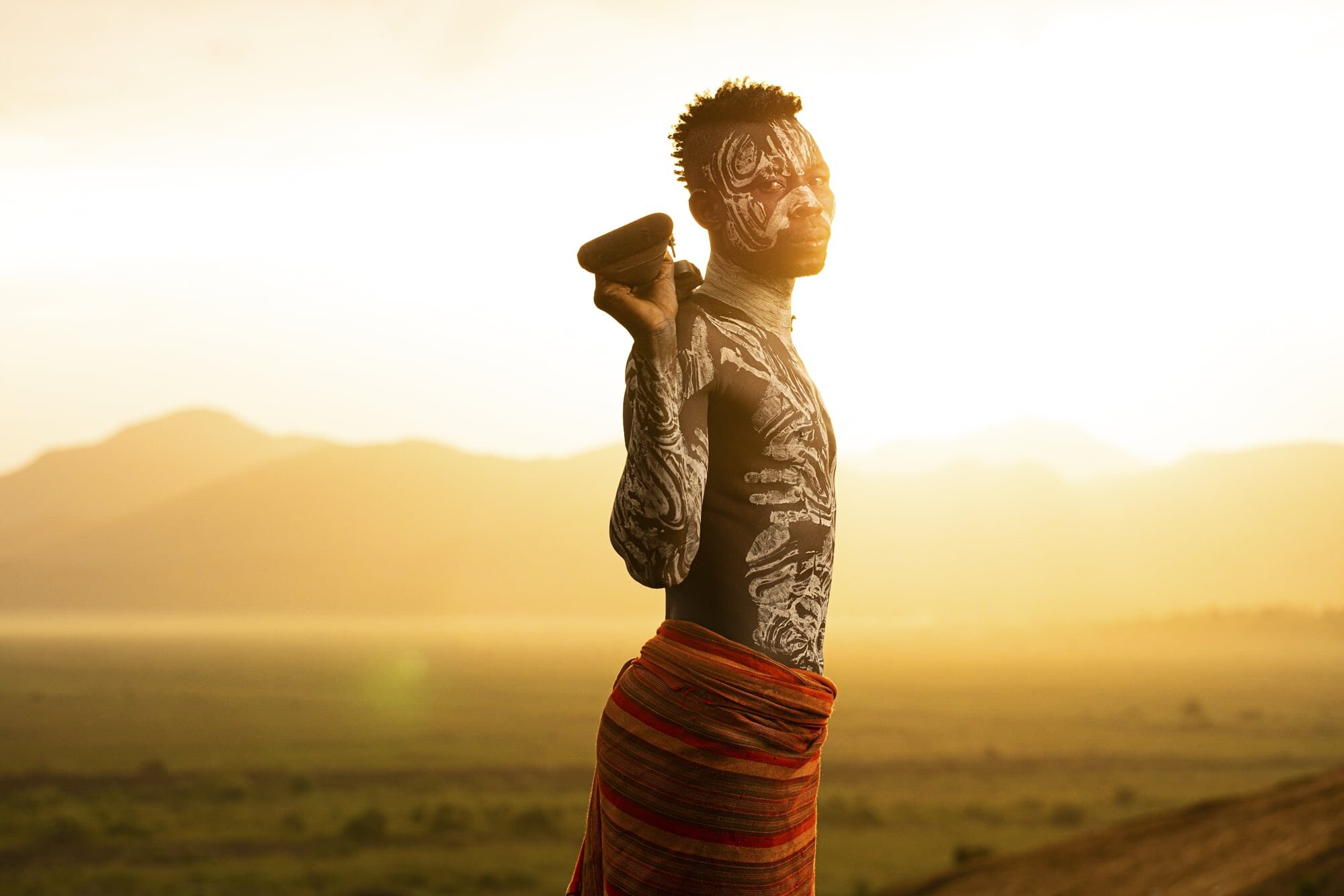
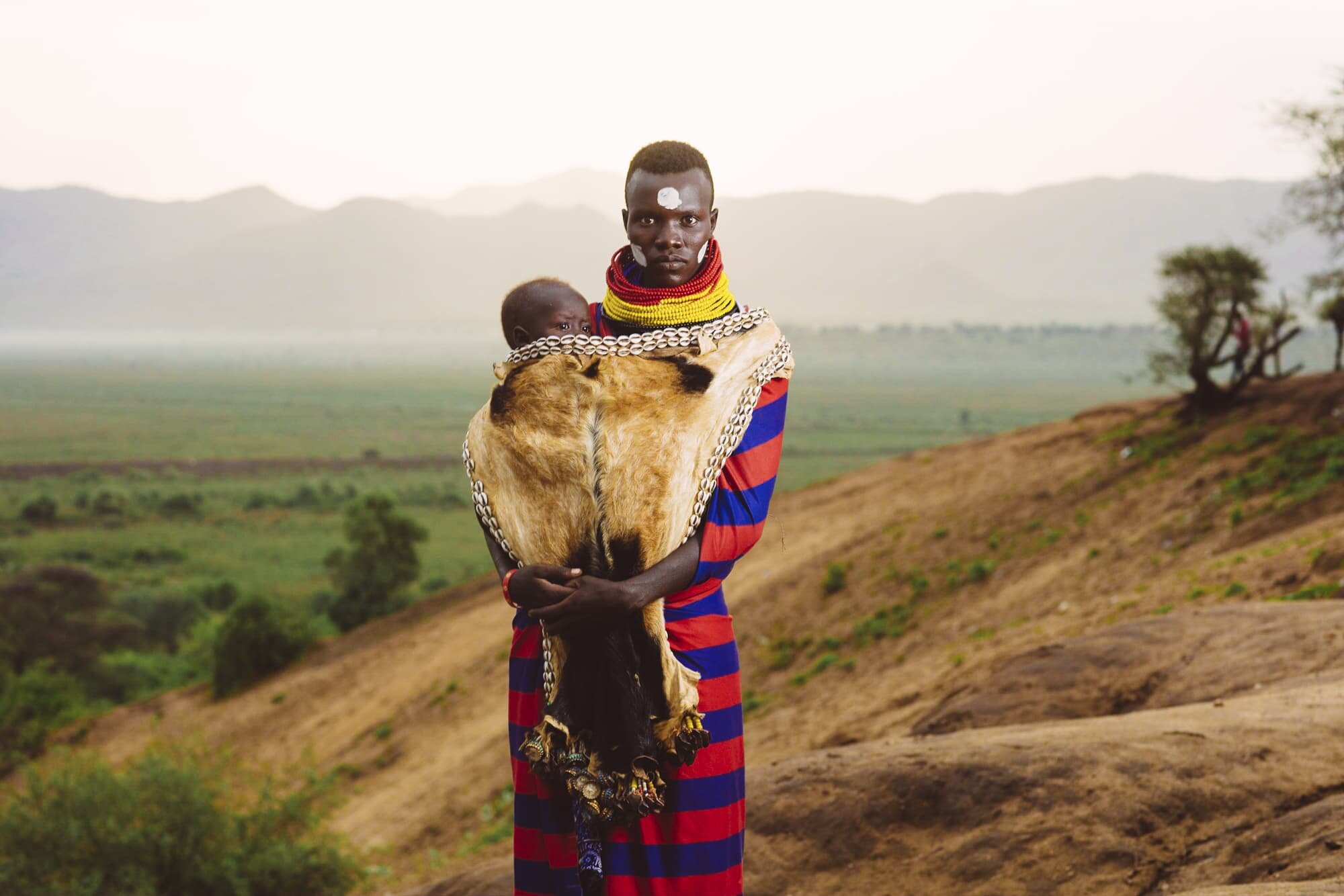
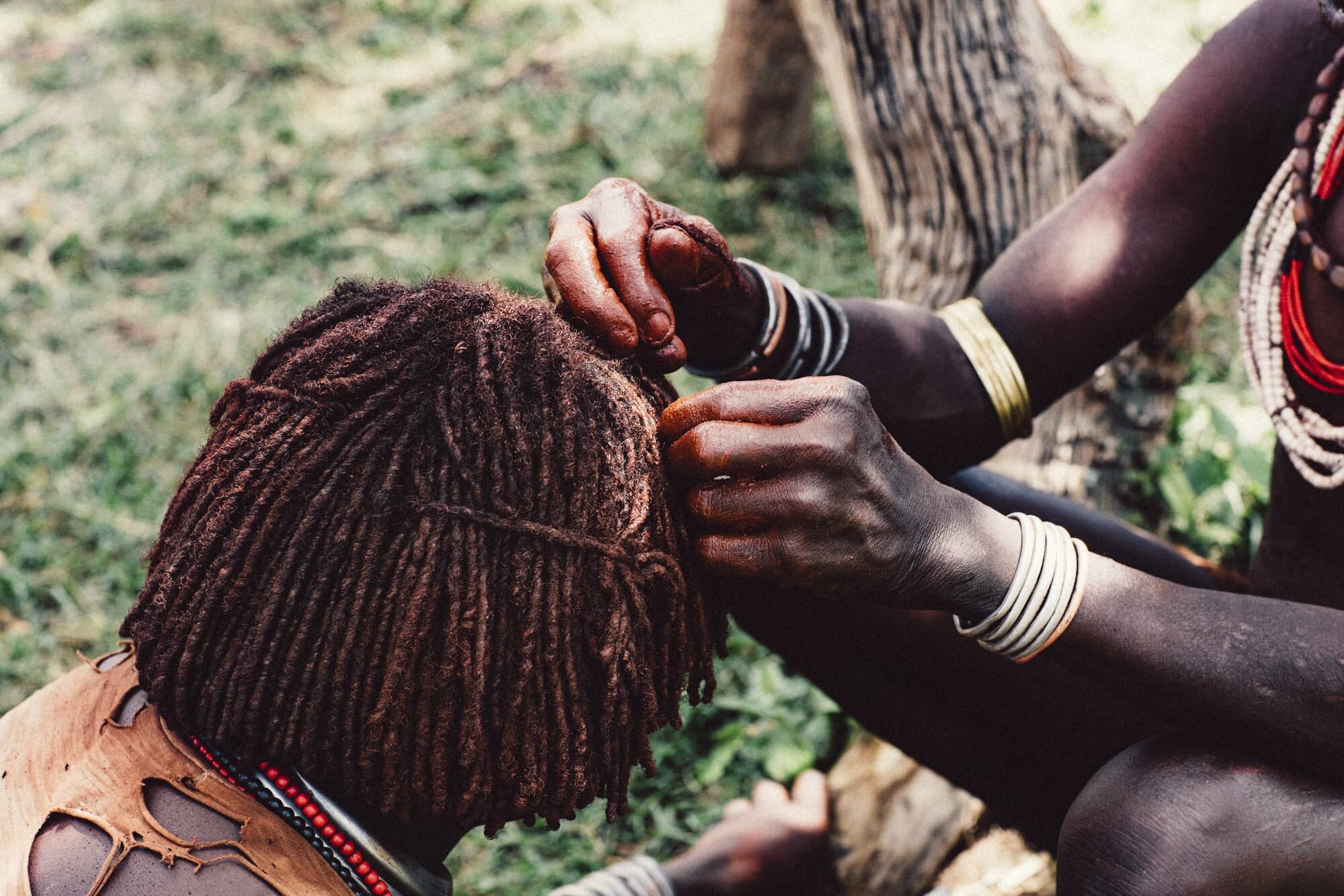
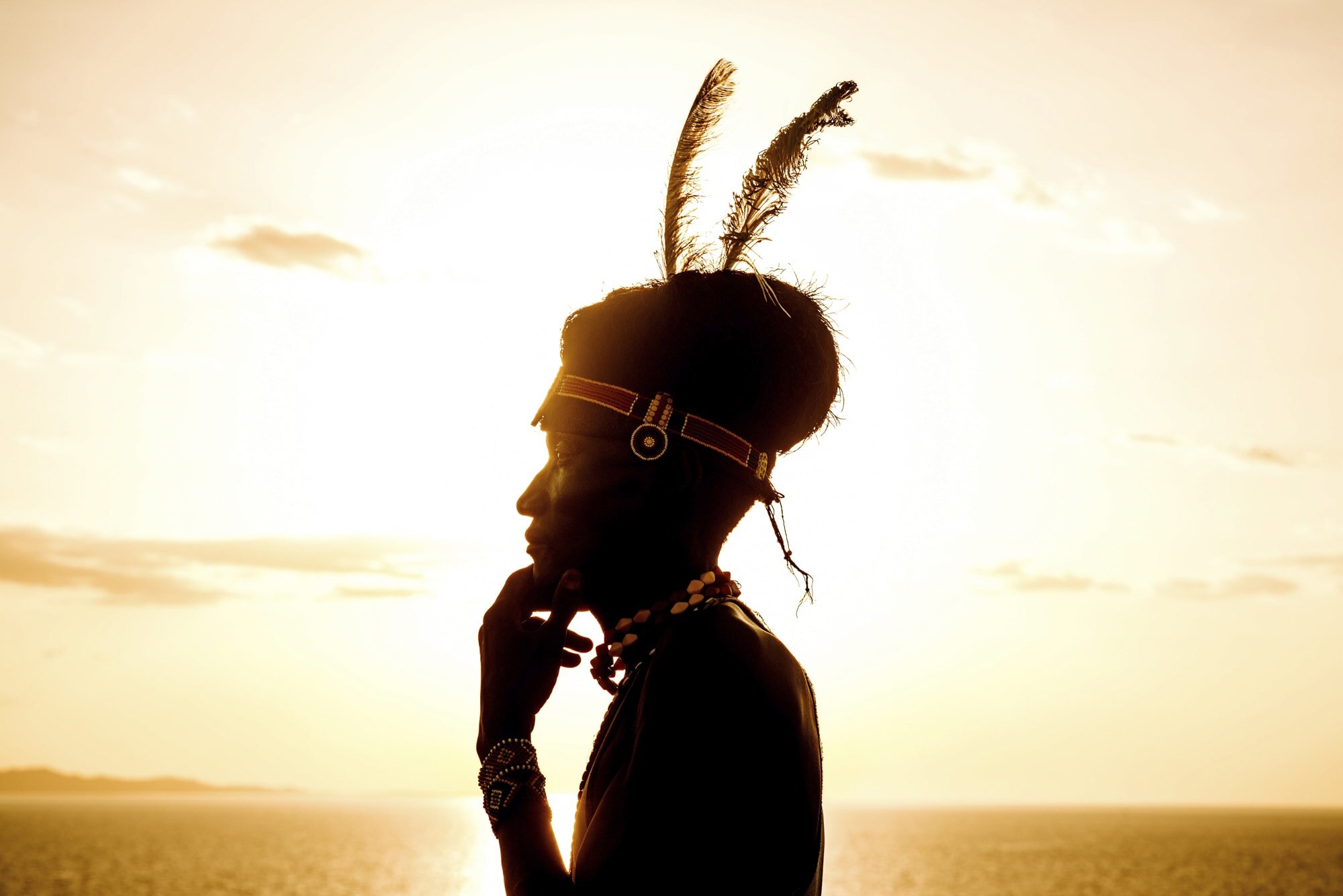
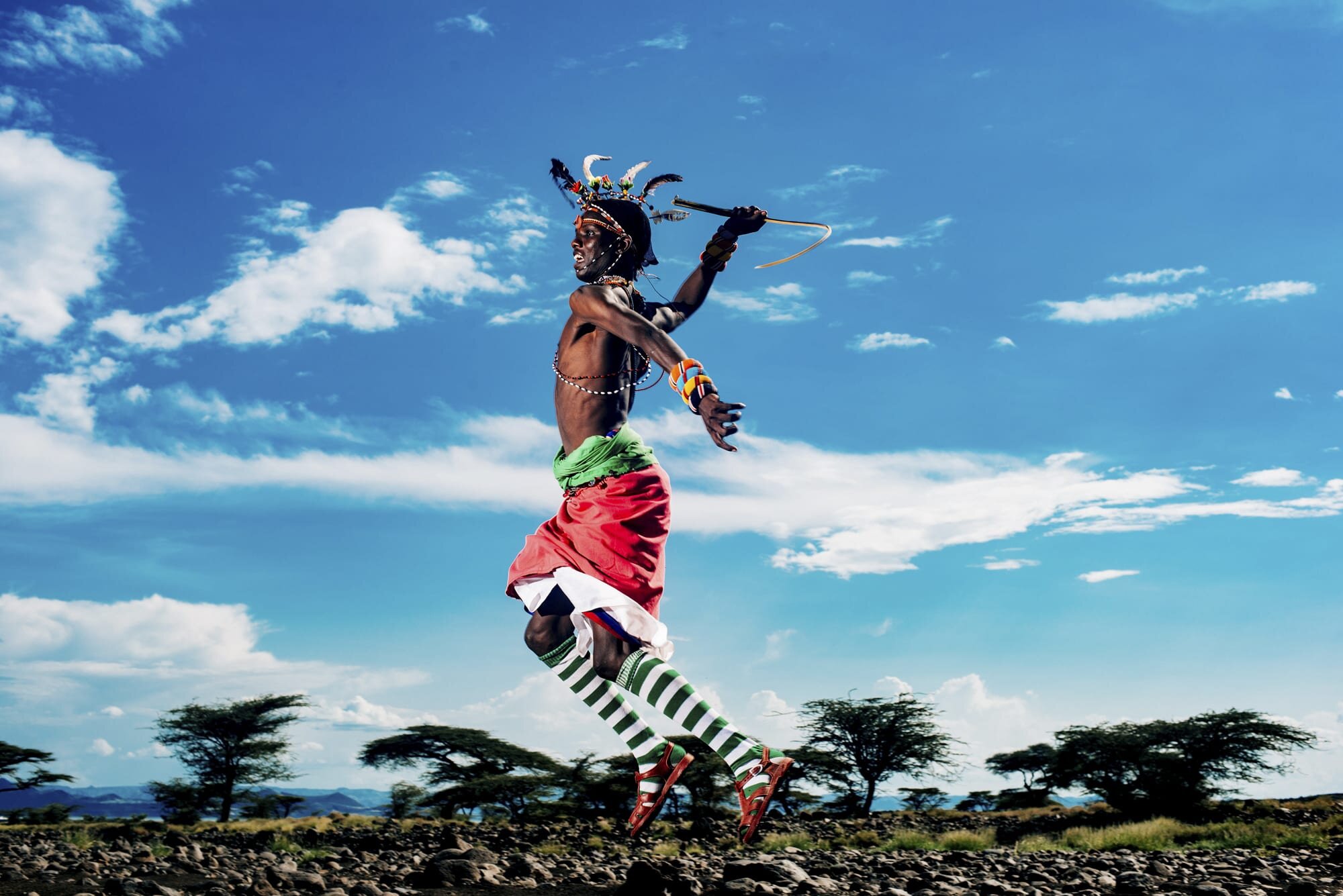
Like I stripped myself of ego or whatever I have. I joined the tribesmen. And I get to know them. I get to live in huts with them and I get to do the daily things. It's really important. I think Black people should be able to tell Black stories. For instance, I'll tell you something that's actually really crazy to me. It actually really affected me during my trip to Southern Ethiopia. My driver and translator took me to this village, and he was telling me ‘everyone is shocked’. And I'm like, ‘what do you mean?’ And he goes, ‘they're usually used to white man photographers. So it's really tricky for them to see a black man as a photographer.’
And I'm like, ‘what do you mean?’ And he goes, ‘You are literally the first black photographer they've seen.’ So basically they’re seeing someone that looks like them doing what a white man usually does. It’s amazing, but it's also really nerve wracking. ‘Like we can do this?’ So for me that was really tricky and emotional.
But I also found myself on a couple of the trips receiving a lot of absolution. When I go on these trips, we try not to have cell phones. So we're not in communication with the world. We're basically in communication with tribesmen so we can stay present and we can also focus on the tribe, and we can focus on telling the real stories that are needed.
It's a beauty. America and most of the Western world have this story about Africa and, when I go into these areas it looks like Scotland. It's like Wakanda. I take a lot of pride in and joy in this project.
I'm not saying white people are not allowed to go to Africa to go photograph things. I'm just asking when you do it, do it with respect, do it with grace, do it with research, do it with just mad respect. That's all, you know how white people go into Africa and they have to take a photo with a baby, you know, like they're like a savior. Don't go to Africa with that mentality. Go into it as you want to learn and give back. Those are really important qualities that I think are needed.
Dan Miller: Being Nigerian, are those qualities that you have noticed have been communicated from the Tribespeople that you spend time with?
Wale Agboola: I think that's something that's been internal with me. My parents didn't raise me to be a disrespectful kid. They didn't raise me to not be kind. They asked me to open my eyes. They asked me to open my heart, they asked me to open my world. You know, sometimes when we go into these villages and it's a hundred people and everyone is working together to the same goal, getting the kids out to the little school, you know, trekking miles for water. They're still grounded in that world. It's something else and it's really beautiful.
Dan Miller: Do you think your perspective changes telling visual stories here in the US specifically stories of a black and brown people?
Wale Agboola: Man it's painful for me because you know. When we were growing up, we're told America is this Oasis. If you can make it here, you can make it anywhere. There's a lot of pain here. The communities and everything that is going on with systematic racism, we grew up learning that America was like this thing that is bigger than anything. And then you realize the pain that it holds. I like to show black people in grace in a good light and as Kings and Queens, that's what I've always imagined it be. But when you come into reality of this world that we live in, there's so much pain, there's so much work to do here, you know?
Dan Miller: Yeah. It's interesting because you we're on the ground in Minneapolis in the weeks after George Floyd's murder and captured some of the visual representations of that moment in time. The unrest and the turmoil that people were feeling, and in capturing a story that was messy, what was important for you to convey in those photos that you captured and decided to share um, that were seen by so many folks and, you know, eventually in publications like Vanity Fair, Vogue, and the New York Times?
Wale Agboola: My job is simply to see. That's my job. That's why I'm here. Uh, I take photos of what I'm feeling and what I can see in my community. That was why I was on the ground was just to see, but also to feel. I think what people really think is we take this photo and we disconnect from it. People don't understand the amount of therapy it took to get through it. Those times were hard. Those times are not easy. It's heartbreaking. It's also great to see this generation wake up and realize they're not going to stand around and watch Black people get killed. It's amazing to see how the community came together and realize ‘we're going to make a stand.’
When I told you my job is just to see. I'll I did was simply pick up my camera and capture the pain that was going around my community that is very sick and tired of getting themselves. Killed Black men get killed absent any reason. Seeing the way Minneapolis woke up. It's a beauty.
I stand with that community so much. I simply just went out because I couldn't sleep and I didn't even know what to do. So what I did was basically capture everything going on around me from running away from ‘proud boys’, running away from cops with tear gas. Standing with, beside people and crying with people. You know, the story of Emmett Till?
Dan Miller: Yes.
Wale Agboola: I had captured one image of George Floyd's casket. And I think the moment I saw the casket, I realized it was the Emmett Till of my generation. That was when I was like, ‘whoa. Yeah. This changes the law.’ I think it was May 29th when George Ford was lynched. That morning I had pulled out of the, my parking space and I was listening to Sam Cooke’s ‘A Change is gonna come’ the night before, and I got into my car in the morning and that song was playing and I realized, well, this is too emotional or early for this morning. And I turned the radio to NPR and they were reporting what happened the night before, which is George Floyd was murdered. I went onto Facebook and a friend that posted the video, so I pulled my car over and I watched everything. I am very good at holding things in and am a very good composer of myself. I think the moment George Floyd cried out for his mom. That changes everything, you know?
The casket of Geroge Floyd captured by Wale Agboola.
I started feeling anger, man, and I just realized this is not going to be something that was going to go away easily. I left the studio around 6:00 PM and the kids have started gathering and I knew this is the beginning of an uprising that is much bigger than all of us. Everyone in Minneapolis, they rose up and they did what they had to do for their community. And I'm so thankful and so grateful just to even be present in those.
Dan Miller: Yeah. I mean, hearing you speak about your experience, I'm taken back to mine during that time period. And, um, you know, we were already working on Spora Health before, but that was a real, no turning back point. We were under-capitalized, and things were not easy for the first half of 2020. We were stretched thin. After that, event unfortunately it was a clear sort of another layer of an awakening internally for me personally to galvanize whoever needed to be galvanized that wanted to collaborate on what we're working on to change this state of access and just general wellbeing of Black Americans in this country.
For me , that moment where you're describing being in the car and watching the video. Very similar when Trayvon Martin was murdered. And that was a story that easily could have been myself, my brothers. We most certainly have walked down to the convenience store growing up with our hoods up carrying groceries back to the house.
In the aftermath of events like these, you mentioned the emotional toll it takes to capture these, these photos, you'll sit with them. Do you find aspects of your work to be therapeutic in a sense? What else do you do to process emotionally when you find yourself exposed to these sorts of events and capturing trauma in this way?
From ‘This Will Destroy You’ Collection
Wale Agboola: Man, it's really hard to look back. It's really hard to look at those images. It felt like years ago, but it's still like yesterday for me, it was really important for me to talk with a therapist. A Black therapist to talk about what's going on in my mind. It's really painful for me to look back into those things because you hope for a better world tomorrow. That's what we're always hoping for. I started taking up running and now it's become the way I process things. I run up in a forest alone, listening to music or podcasts. But it's really important that Black folks get therapy and start working on the inner things. You know, the things that we shelve away. For me, those moments are still a nightmare. I mean, I didn't sleep well for over three months. I wake up in the middle of the night. I still remember broken bottles, fire, running into bushes so I don't get run over by proud boys. Like those things stick with you. I think people see photos and they're like, ‘oh God, it's so good!’ But they don't know how much pain it really took to capture that. And that it doesn't leave you, it stays with you. I don't want to be known for photographing pain. That's not my ideal life. But it is the life I live in right now, so I’ve got to do it. I carry it like a badge everyday, everywhere I go, but I also talk to a therapist on a daily basis, work my body, eat properly and have friends and family members just to talk to.
I have a really deep core group of guys where we can tell eachother everything, but we can also hold each other accountable. “What are you doing to take care of yourself?” “What have you done today besides work?” You need people in your life to remind you you're not alone. We're all going through this trauma together. So you best start walking towards something better or else you will sink. I could have easily fallen into quicksand during that time and let everything absorb me. But I'm really thankful that I had good friends to lift me back up. You gotta keep going, you know? So find good therapy. Find something that works for your body and soul. Take care of you because if you don't have a clear head, a clear mind, my friend you're, you're gone.
“So you best start walking towards something better or else you will sink”
Dan Miller: Well said. How do you stay in touch with this group of friends? Is this a sort of, um, you know, a group chat that y'all have?
Wale Agboola: Oh man. Phone with text. We FaceTime. Every friend lives in a different city. I have a good core group of friends here in Portland, where we all cook together and eat together. But the ones that live in different states, we make sure we text each other every day. “Yo what's going on, dude?” “I just won a project today.” “Congratulations, man!” The little things that matter right now are the biggest things and those core guys are my ride or dies. They're like my brothers.
Dan Miller: Beautiful. So transitioning a little bit. What would you say is the best piece of health advice you've ever gotten and who did it come from?
From ‘This Will Destroy You’ Collection
Wale Agboola: Oh, man, my parents. As much as they want me to find a wife and settle down and all that, they’re so good at telling me, “Take care of yourself. Take care of your mental health. Do what you can and leave the rest.” And I have got these two amazing friends. I remember the Trayvon Martin era and Philando Castile when they passed away, And I remember sitting down with one of my best friends, and we're talking about this, looking at the Capitol building in Saint Paul, Minnesota. And he basically looked at me, and he goes, ‘You need to go to therapy.’ And I'm like, ‘Yeah, man, that's not something I want to do.’ And he goes, ‘Wale, trust me, you need to go to therapy. I will pay for the first visit.’ That's a friend. That friend would come over to my home and we would go running. We would talk about things, but then when I visit my parents, you know, Black folks, food is the way to everyone's heart. Momma cooks an excellent meal. I talked to my sisters, you know, we talk openly about health and how important it is.
You know, my dad had a bit of a cancer scare a couple of years back, and I remember how painful that was for me as a son to deal with it because I had to take him to the hospital constantly. He would get into this moment of emotion and he would tell me, “What are you doing to keep your health alive? Are you working out?” And he would question me about that. And when I see mom, mom was like, ‘What's your skin regimen? What are you doing?” My parents and good friends, that's always been a good source.
Dan Miller: Yeah. That's great.
Wale Agboola: Yeah. I mean, you, you just got to stay on top of this because you don't know where you're going to drop or when you might hold something inside for too long. And you explode on the wrong person.
Being from Nigeria, sometimes in our community, when you tell folks that you're depressed, you know, your parents come at you, like, ‘what are you depressed about? Do you have life? You've got food coming in, you've got everything.’ And I'm like, it's bigger than that. You know, we're working nine to five, we're working to make it through a day. So you've got to take care of what's up there or else you might just lose it all.
How are you doing?
Dan Miller: I’m well. I'm really well, actually. I also run. Do you actually use Strava?
Wale Agboola: No. So we have a run club in Portland, all Black people. We have a great run club every Tuesday where a bunch of BIPOC people get together and we run.
Dan Miller: Oh, that's great.
Wale Agboola: It's beautiful.
Dan Miller: Yes. I wish we had something like that in Oakland. Strava is a social network for folks that are running and you track your runs. We've created a community for our members of Spora Health. It's a cool little network of accountability, but also just to check in with other folks that are running, bettering themselves, and being healthier versus some of the other social networks out there that head in the other direction. As we think about wrapping up, what are some ways that folks can stay in touch with you and follow you along your journey?
Wale Agboola: My Instagram is @thegoodhomies_, but people can also email me. True that. Check out my website deenstudio.com. I'm always open for conversation and I'm always open to mentoring photographers. I'm always available to talk it true. We live in such a mad world right now and all we've got is us. All we've got is our community. All we got is what we are. There's some people out there that are going through bigger stuff, but I'm always here, you know, to talk, to work it out, for some good food, some good natural wines. A good hike. Yeah, you can find me.
Dan Miller: Awesome.
Wale Agboola: Thank you so much. I appreciate what you guys are doing. Keep up the great work and looking forward to collaborating with you guys soon.
Find More Wale:
On Instagram
Check out the Good Homies website and see more of Wale’s work
Watch more conversations on our YouTube Channel



